Daily countertop cleaning: it’s the unsung hero of a sparkling, healthy kitchen! Let’s be honest, we’ve all been there – a quick wipe here, a forgotten spill there, and suddenly your countertops are looking less than their best. But what if I told you that a few simple, daily habits could transform your kitchen from a potential germ haven to a gleaming, inviting space?
Countertops have been the heart of our kitchens for centuries. From simple wooden tables in ancient homes to the sleek granite and quartz surfaces of today, they’ve always been the place where we prepare food, gather with family, and even share stories. In many cultures, a clean kitchen is seen as a reflection of a healthy and prosperous home. And while the materials have changed, the importance of keeping these surfaces clean has remained constant.
But why is daily countertop cleaning so crucial? Well, think about it: your countertops come into contact with everything from raw meat and vegetables to sticky spills and dirty hands. Without regular cleaning, these surfaces can become breeding grounds for bacteria and germs, potentially leading to illness. Plus, let’s face it, a clean countertop just *looks* better! It makes your kitchen feel more inviting and inspires you to cook and create delicious meals. This DIY guide will provide you with simple, effective tricks and hacks to make daily countertop cleaning a breeze, so you can enjoy a healthier, happier kitchen without spending hours scrubbing.
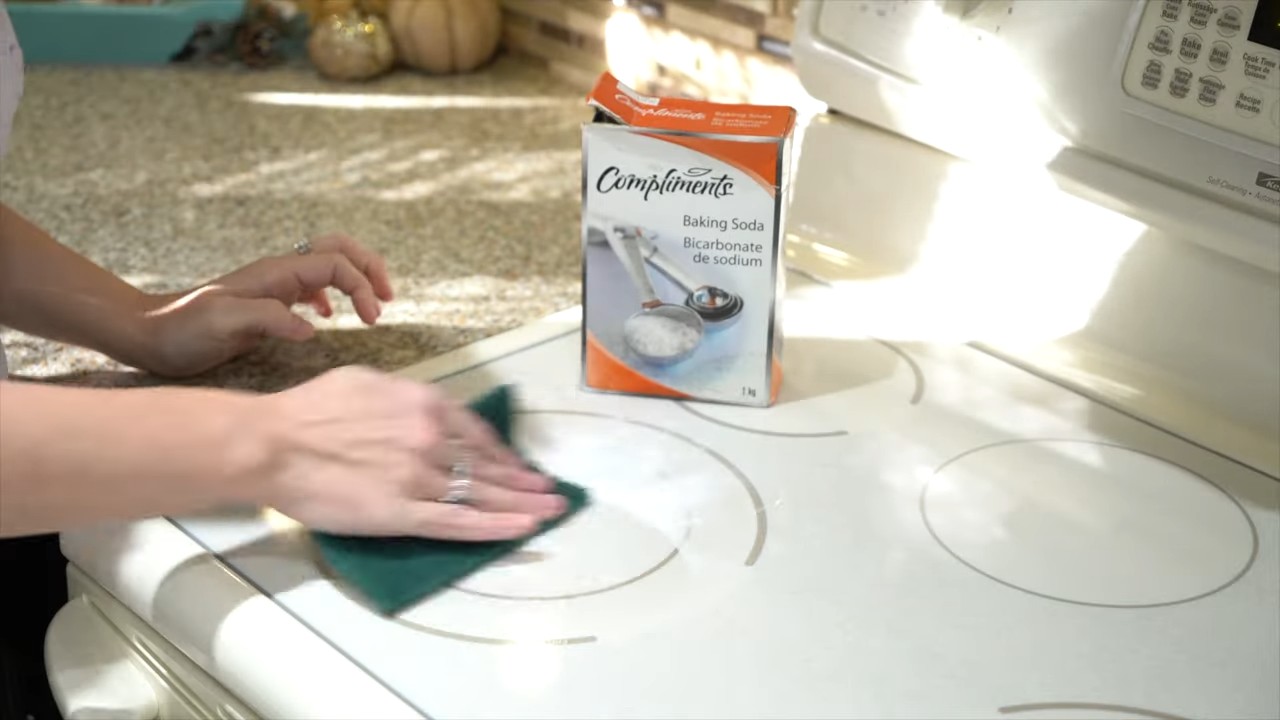
DIY Daily Countertop Cleaning: Sparkling Surfaces in Minutes!
Hey everyone! I know, cleaning countertops isn’t exactly the most glamorous topic, but trust me, keeping them clean *daily* makes a HUGE difference. It prevents stains from setting, stops bacteria from spreading, and honestly, just makes your kitchen (or bathroom, or wherever!) feel so much fresher. I’m going to share my super simple, super effective daily countertop cleaning routine. It takes less than 5 minutes, and you probably already have everything you need!
Why Daily Cleaning Matters
Before we dive in, let’s quickly chat about why this daily habit is so worth it.
* Prevents Stains: Spills happen! Coffee, juice, sauces – they can all leave stubborn stains if you let them sit. Daily cleaning wipes them away before they have a chance to set.
* Reduces Bacteria: Countertops are germ magnets. Think about it: raw meat, dirty dishes, sticky fingers… Daily cleaning keeps the bacteria at bay and protects your family’s health.
* Maintains Shine: Regular cleaning helps maintain the shine and luster of your countertops, preventing them from looking dull and worn.
* Saves Time in the Long Run: A quick daily wipe-down is much easier than tackling a deep clean every week. Trust me on this one!
* Peace of Mind: Knowing your countertops are clean and sanitary just feels good, right?
What You’ll Need
Okay, let’s gather our supplies. The beauty of this routine is that it’s so simple.
* Spray Bottle: An empty spray bottle is essential for holding your cleaning solution.
* Microfiber Cloths: These are my absolute favorite for cleaning! They’re super absorbent, gentle on surfaces, and reusable.
* Cleaning Solution (Choose One):
* Dish Soap and Water: This is my go-to for everyday cleaning. It’s gentle, effective, and readily available.
* Vinegar and Water: A classic natural cleaner! Vinegar is great for cutting through grease and grime. (Use with caution on certain surfaces like marble – more on that later!)
* Commercial Countertop Cleaner: If you prefer a store-bought cleaner, choose one that’s specifically designed for your countertop material.
* Optional:
* Baking Soda: For tackling stubborn stuck-on messes.
* Lemon Juice: For extra cleaning power and a fresh scent.
Choosing the Right Cleaning Solution for Your Countertop
This is super important! Different countertop materials require different care. You don’t want to damage your beautiful surfaces.
* Granite: Granite is generally durable, but avoid harsh chemicals like bleach, ammonia, and abrasive cleaners. A pH-neutral cleaner (like dish soap and water) is best. You can also use a granite-specific cleaner.
* Quartz: Quartz is non-porous and very resistant to stains. Dish soap and water usually does the trick. For tougher messes, you can use a non-abrasive cleaner.
* Marble: Marble is porous and can be easily damaged by acidic cleaners like vinegar and lemon juice. Stick to pH-neutral cleaners specifically designed for marble.
* Laminate: Laminate is relatively easy to clean. Dish soap and water or a mild all-purpose cleaner works well. Avoid abrasive cleaners, as they can scratch the surface.
* Butcher Block: Butcher block requires special care. Clean with mild soap and water, and be sure to dry it thoroughly. Regularly oil your butcher block to prevent it from drying out and cracking.
* Tile: Tile is durable, but the grout can be a pain to clean. Use a grout brush and a grout cleaner to tackle any stains or discoloration.
Step-by-Step Guide to Daily Countertop Cleaning
Alright, let’s get cleaning! Here’s my foolproof method:
1. Clear the Countertop: Before you start, remove everything from your countertop – appliances, dishes, utensils, etc. This will give you a clear surface to work with and prevent you from accidentally spraying your stuff.
2. Prepare Your Cleaning Solution:
* Dish Soap and Water: Mix a few drops of dish soap with warm water in your spray bottle. Don’t use too much soap, or you’ll end up with a soapy residue.
* Vinegar and Water: Mix equal parts white vinegar and water in your spray bottle. Remember to avoid using this on marble!
* Commercial Cleaner: Follow the instructions on the product label.
3. Spray the Countertop: Lightly spray your countertop with your chosen cleaning solution. Don’t over-saturate it – a light mist is all you need.
4. Wipe with a Microfiber Cloth: Using a clean microfiber cloth, wipe the entire countertop surface, paying attention to any spills or messes. Use a circular motion to loosen any stuck-on food particles.
5. Rinse (If Necessary): If you used a lot of soap or cleaner, you might want to rinse the countertop with a clean, damp microfiber cloth to remove any residue. This is especially important for dark-colored countertops, as soap residue can be more visible.
6. Dry the Countertop: Use a clean, dry microfiber cloth to dry the countertop thoroughly. This will prevent water spots and streaks.
7. Tackle Stubborn Messes (If Needed): If you encounter any stubborn messes that won’t come off with your regular cleaning solution, try these tips:
* Baking Soda Paste: Make a paste of baking soda and water and apply it to the stain. Let it sit for a few minutes, then scrub gently with a non-abrasive sponge or cloth.
* Lemon Juice: For grease stains, try applying a small amount of lemon juice to the stain. Let it sit for a few minutes, then wipe clean. (Again, avoid using this on marble!)
8. Replace Items on the Countertop: Once the countertop is completely dry, you can put everything back in its place.
Deep Cleaning Tips for Countertops
While daily cleaning keeps your countertops looking great, it’s still a good idea to do a deep clean every once in a while. Here are a few tips:
* Disinfect Regularly: Especially after preparing raw meat or poultry, disinfect your countertops with a disinfecting cleaner. Make sure to follow the product’s instructions for proper disinfection.
* Clean Grout Lines: If you have tile countertops, pay special attention to the grout lines. Use a grout brush and a grout cleaner to remove any stains or discoloration.
* Seal Granite Countertops: Granite countertops need to be sealed periodically to prevent staining. Follow the manufacturer’s instructions for sealing your granite countertops.
* Oil Butcher Block Countertops: Butcher block countertops need to be oiled regularly to prevent them from drying out and cracking. Use a food-safe mineral oil or butcher block oil.
Troubleshooting Common Countertop Cleaning Problems
Sometimes, despite our best efforts, we run into cleaning challenges. Here are a few common problems and how to solve them:
* Streaky Countertops: Streaks are often caused by using too much soap or cleaner. Try using less product and rinsing the countertop thoroughly. Drying with a clean, dry microfiber cloth can also help.
* Dull Countertops: Dullness can be caused by a buildup of soap scum or hard water deposits. Try using a cleaning solution that’s specifically designed to remove these types of buildup.
* Stains That Won’t Come Out: For stubborn stains, try using a baking soda paste or a commercial stain remover. Be sure to test the product in an inconspicuous area first to make sure it doesn’t damage the countertop.
* Sticky Residue: Sticky residue is often caused by spills that haven’t been cleaned up properly. Try using a degreasing cleaner to remove the residue.
My Favorite Cleaning Solution Recipes
Here are a couple of my go-to cleaning solution recipes that I swear by:
* All-Purpose Cleaner:
* 1 cup water
* 1/2 cup white vinegar
* 10-15 drops essential oil (lemon, lavender, or tea tree are great choices)
* Mix all ingredients in a spray bottle.
* Grease-Cutting Cleaner:
* 1 cup water
* 1 tablespoon dish soap
* 1 tablespoon baking soda
* Mix all ingredients in a spray bottle.
A Few Extra Tips and Tricks
* Keep Cleaning Supplies Handy: Store your cleaning supplies in a convenient location, like under the sink or in a nearby cabinet. This will make it easier to clean your countertops every day.
* Wipe Up Spills Immediately: The sooner you wipe up a spill, the less likely it is to stain.
* Use Cutting Boards: Always use cutting boards when preparing food to protect your countertops from scratches
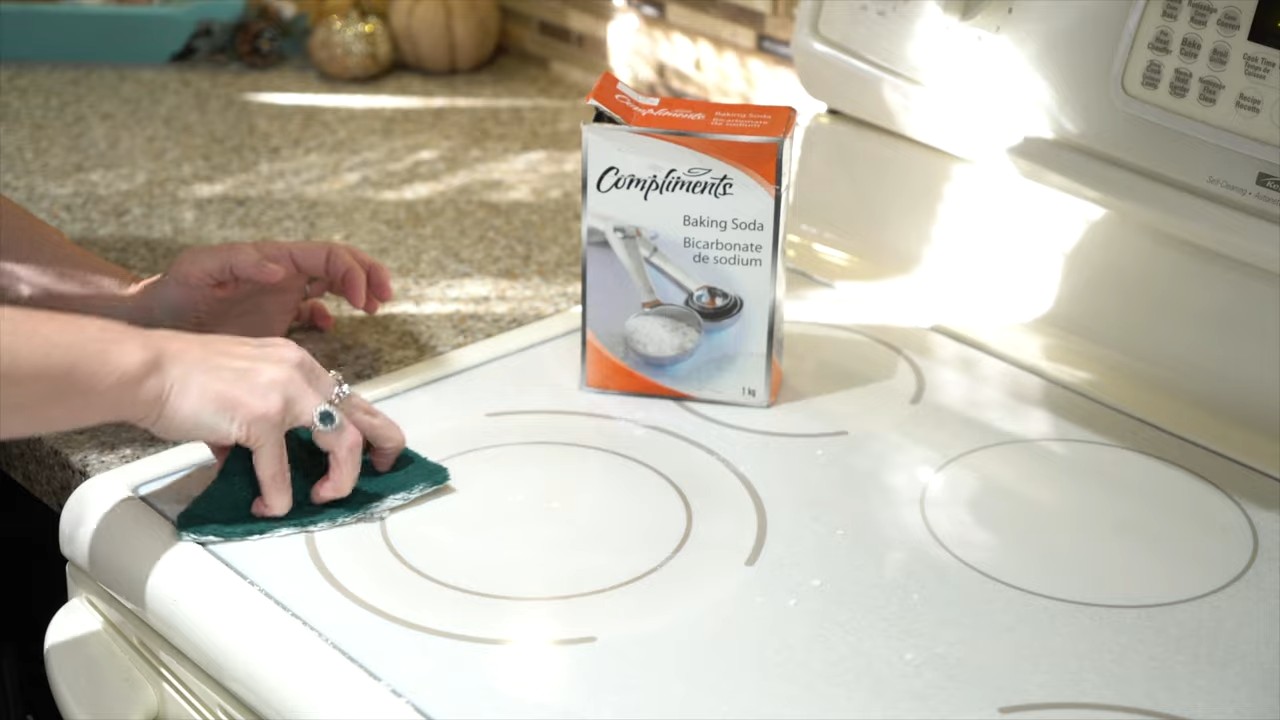
Conclusion
So, there you have it! Mastering the art of daily countertop cleaning doesn’t have to be a chore. It can be a simple, effective, and even enjoyable part of your routine. This DIY approach, using readily available ingredients and minimal effort, offers a powerful alternative to harsh chemical cleaners, safeguarding your health and the environment.
Why is this DIY trick a must-try? Because it’s not just about cleaning; it’s about creating a healthier home. It’s about knowing exactly what you’re using on surfaces where you prepare food, where your children play, and where you spend a significant amount of your time. It’s about saving money by repurposing items you likely already have in your pantry. And, perhaps most importantly, it’s about achieving sparkling clean countertops without sacrificing your well-being or contributing to environmental pollution.
But the beauty of this method lies in its adaptability. Feel free to experiment with different essential oils to find your favorite scent. Lavender, lemon, tea tree, and eucalyptus are all excellent choices, each offering its own unique aroma and potential antibacterial properties. For granite or marble countertops, be sure to use a pH-neutral soap to avoid etching the surface. You can also adjust the ratio of ingredients to suit your specific needs and preferences. If you have particularly stubborn stains, try letting the solution sit for a few minutes before wiping it away.
Consider adding a splash of white vinegar to your cleaning solution for extra degreasing power, especially if you frequently cook with oils. However, remember that vinegar can be acidic, so always test it in an inconspicuous area first, particularly on delicate surfaces like marble. Another variation involves infusing your water with citrus peels for a natural, refreshing scent. Simply simmer citrus peels in water for about 30 minutes, let it cool, and then use that water in your cleaning solution.
We believe that this simple yet effective DIY countertop cleaning method will revolutionize your cleaning routine. It’s a game-changer for anyone seeking a natural, affordable, and reliable way to keep their countertops sparkling clean.
Now, we encourage you to give it a try! We’re confident that you’ll be amazed by the results. And, most importantly, we want to hear about your experience. Share your tips, variations, and success stories in the comments below. Let’s build a community of clean, healthy homes, one countertop at a time. What essential oil combinations did you find most effective? Did you discover any unexpected benefits? Your feedback is invaluable and will help others discover the joy of natural cleaning. Don’t be shy – share your DIY countertop cleaning journey with us! Let us know if you have any questions, and we will do our best to answer them.
FAQ
What exactly are the benefits of using a DIY countertop cleaner instead of store-bought options?
DIY countertop cleaners offer a multitude of benefits. Firstly, they are often much cheaper than commercial cleaners, as you’re using ingredients you likely already have at home. Secondly, you have complete control over the ingredients, avoiding harsh chemicals, artificial fragrances, and potential allergens that can be harmful to your health and the environment. Thirdly, DIY cleaners are customizable – you can adjust the scent and strength to suit your preferences and specific cleaning needs. Finally, making your own cleaner reduces plastic waste, contributing to a more sustainable lifestyle.
Is this DIY cleaner safe for all types of countertops?
While this DIY cleaner is generally safe for most countertop surfaces, it’s crucial to consider the material of your countertops. For granite and marble, it’s best to use a pH-neutral soap to prevent etching. Avoid using vinegar or other acidic ingredients on these surfaces. For laminate, quartz, and solid surface countertops, this cleaner is typically safe, but it’s always a good idea to test it in an inconspicuous area first to ensure it doesn’t cause any discoloration or damage. If you’re unsure about the suitability of this cleaner for your specific countertops, consult the manufacturer’s recommendations.
What kind of soap should I use for this DIY cleaner?
The best type of soap to use is a mild, pH-neutral dish soap or castile soap. Avoid using soaps that contain harsh chemicals, dyes, or fragrances, as these can leave a residue on your countertops or potentially damage the surface. Unscented castile soap is an excellent choice as it’s gentle, effective, and environmentally friendly.
How often should I clean my countertops using this DIY method?
For optimal hygiene and cleanliness, it’s recommended to clean your countertops daily, especially after preparing food. This helps prevent the buildup of bacteria, germs, and food residue. However, the frequency may vary depending on your lifestyle and usage. If you cook frequently or have young children, you may need to clean your countertops more often.
Can I use essential oils other than the ones mentioned in the article?
Absolutely! Feel free to experiment with different essential oils to find your favorite scent and reap their potential benefits. Lavender, lemon, tea tree, eucalyptus, peppermint, and orange are all popular choices for cleaning. Just be sure to use pure, high-quality essential oils and dilute them properly in the cleaning solution. Some essential oils, like citrus oils, can be photosensitive, so avoid using them on countertops that are exposed to direct sunlight.
How long does this DIY cleaner last?
This DIY cleaner typically lasts for about a week or two when stored in a cool, dark place. Since it doesn’t contain any preservatives, it’s best to make it in small batches to ensure its freshness and effectiveness. If the cleaner starts to smell off or becomes cloudy, it’s time to discard it and make a fresh batch.
What if I have stubborn stains on my countertops?
For stubborn stains, try letting the cleaning solution sit on the stain for a few minutes before wiping it away. You can also create a paste of baking soda and water and apply it to the stain. Let it sit for about 15-20 minutes, then gently scrub it away with a soft cloth. For grease stains, try adding a splash of white vinegar to your cleaning solution.
Is it necessary to rinse my countertops after using this DIY cleaner?
In most cases, rinsing is not necessary, especially if you’re using a mild soap and diluting it properly. However, if you notice any residue or streaks after cleaning, you can rinse your countertops with clean water and dry them with a clean cloth.
Can I use this DIY cleaner on other surfaces in my home?
While this cleaner is primarily designed for countertops, it can also be used on other surfaces, such as sinks, stovetops, and backsplashes. However, always test it in an inconspicuous area first to ensure it doesn’t damage the surface. Avoid using it on delicate surfaces like wood or painted walls.
What should I do if I experience an allergic reaction to any of the ingredients in this DIY cleaner?
If you experience any allergic reaction, such as skin irritation, redness, or itching, discontinue use immediately and wash the affected area with soap and water. If the symptoms persist, consult a doctor or dermatologist. Always be mindful of any allergies you may have and choose ingredients accordingly.

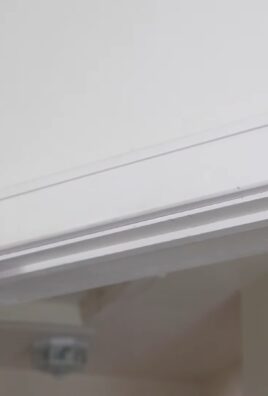
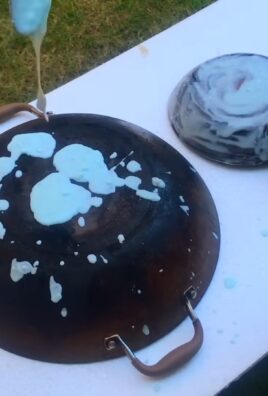
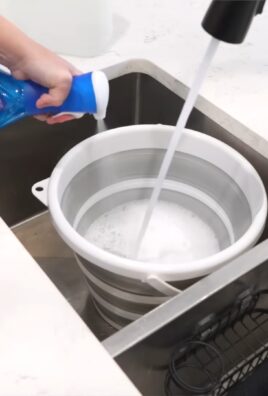
Leave a Comment